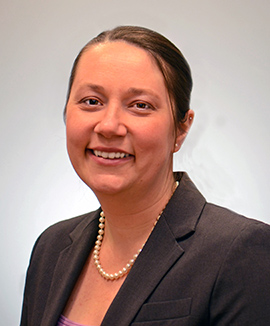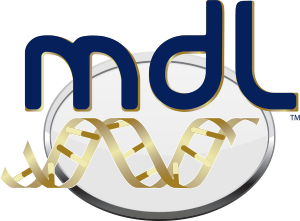Founded in 1997, Medical Diagnostic Laboratories (MDL) serves mainly as a reference laboratory for molecular diagnostic based testing to laboratories, hospitals and physicians worldwide
The success of MDL is attributed directly to client retention through our ability to customize our unique services to specifically address the individual needs of our clients. Enhanced turn-around time, cost effectiveness, and the capability to tailor services to best suit the needs and budgets of our clients gives MDL a distinct advantage over its competitors. MDL offers unique, non-invasive, highly stable specimen collection and transport platforms, such as the OneSwab®, UroSwab® and NasoSwab®. These platforms enable MDL to offer a variety of PCR based tests from a single swab with high sensitivity and specificity.
MDL specializes in high complexity, state-of-the-art, automated DNA-based molecular analysis. By utilizing molecular techniques, MDL is able to provide clinicians from many different specialties valuable diagnostic information to assist in the detection, diagnosis, evaluation, and treatment of bacterial, viral and fungal infections as well as genetic based testing and cancer diagnostics. For example, the unique testing MDL offers for the specialties of Urology, Gynecology and Pediatric Medicine enables the detection of multiple pathogens as well as certain drug resistance profiles from a single swab by Polymerase Chain Reaction (PCR) testing. MDL’s primary focus is in the fields of infectious disease testing for Women’s Health and Gynecology, Pediatric Respiratory Infections, Urology, Vector-borne Diseases, Mycology and chronic illnesses.
MDL is comprised of experts in the fields of Molecular Biology, Immunology, Virology, Microbiology, Mycology, Pharmacogenomics, Antimicrobial Resistance and Oncology. In addition to developing and validating new clinical diagnostic tests, the Research and Development Department also publishes research projects in peer-reviewed journals, presents scientific information at international symposia, and performs contractual research work for major commercial, governmental, and academic organizations.
Executive Personnel
-

Eli Mordechai, Ph.D.Chief Executive Officer & Founder -

Martin E. Adelson, Ph.D.Chief Operating Officer -

Bridgette Ballard President of Sales & Business Development -

Kelly Winchester Chief Laboratory Strategy Officer -

Kim CabetsDirector of Quality Assurance -

William HordDirector of Operations -

Brian ConwayVice President of Lab Operations -

Bhavina PatelDirector of Lab Operations -

Tyler RogersDirector of Lab Operations – Technology -

Rachel GuerrinoDirector of Quality Control and Lab Services -

Alison TerranaVice President of Sales – East Division -

Jordan Rose Vice President of Sales, Mid-Atlantic & Southeast -

Jessica KruegerVice President of Sales - Central Division
Certifications& Licenses
- New Jersey State Department of Health - 0000875
- Pennsylvania Department of Health - 026538
- Florida Clinical Laboratory State License - 800014396
- New York State Department of Health - PFI: 7469
- Rhode Island Department of Health - LCO00420
- California Department of Health - C0S 800136
- Maryland Department of Health - 1133
- CAP – Accreditation Unit - AUID#: 111389
- Medicare Provider Number - 300851
- CLIA - 31D0938156
MDL is recognized for its continued excellence in participation of the proficiency testing program administered by the College of American Pathologists (CAP). MDL is licensed in multiple states, including New York, Florida, and California. As a result, MDL is regularly inspected by the CAP and must adhere to strict regulations and quality control guidelines. MDL has continually maintained exemplary ratings by these agencies
Research & Development
The Development Division within the Research and Development Department of MDL is comprised of four general categories: Blood-Borne Pathogens, Obstetrics/Gynecology/Urinary Tract Infections, Pediatric Infectious Diseases and Cytogenetics. The aim of the first three divisions is to identify potential pathogenic agents clinically germane to their respective focus of interest. Once identified, diagnostic tests are designed for their identification in clinical specimens sampled using MDL’s proprietary OneSwab®, UroSwab® and NasoSwab® technologies, as well as other medias, including blood, synovial and cerebrospinal fluids and ThinPrep. Dividing the pathogenic agents clinically allows MDL to concentrate their efforts upon medically relevant infectious agents that meet the needs of both the physician and the individual through our extensive testing menus and rapid reporting times. MDL’s goal is to aid the physician in planning their course of treatment. Antibiotic resistance is a naturally occurring phenomenon that renders certain antibiotics, often times the treatment of choice, useless. As antibiotic resistant agents are identified, MDL modifies its testing procedures to include reflexive testing that enables physicians to modify their treatment strategies. Such advanced diagnostic testing is already available for ciprofloxacin-resistant Neisseria gonorrhoeae, clindamycin and erythromycin resistant Group B Streptococcus, amantadine-resistant influenza A, and clarithromycin-resistant Helicobacter pylori.
